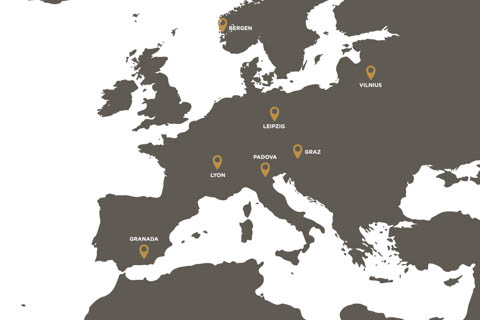Quantitative Economics
|
Faculty
Economics and Business Administration
|
|
|
|
Scope of studies and length 180 ECTS credits, 3 years |
|
|
Qualification awarded Bachelor in Social Sciences |
|
|
Application deadline* 1 May / 1 July |
|
|
Language English |
|
|
Tuition fee per year 3 660 € |
|
|
Start of studies
1 September
|
| City Vilnius |
The Quantitative Economics (QE) programme was created by the Bank of Lithuania researchers trained at the world’s best universities to transform economics education in the country. The course structure ensures an in-depth coverage of critical fields, namely data science and computing, finance, and economics, which are highly valuable in the job market. Over time other programmes have adopted similar structure, yet QE remains the most challenging, selective, and supportive programme. Each student has to pass a higher minimum grade bar and, upon admission, is matched with a senior mentor who provides tailored academic, career, and social advice. The QE programme is taught by research-active lecturers and professors with PhDs from leading universities worldwide, helping to keep the contents of the course up to date. In addition, it is based on the CORE project, OpenStax and other modern teaching methods in economics and finance. Last but not least, the scholarships for the best students are provided by social partners, such as the Bank of Lithuania and Nasdaq, to mention a few.
Click here to see the program leaflet.
Why choose this programme?
|
What comes after?Our graduates may be employed as a:
|
|
“For several years now the Bank of Lithuania participates in the joint policy decision making of the Eurosystem. At the round table discussions it is the best and most convincing economic arguments that define the monetary stance of the Eurosystem, regulatory interventions and the design of the future Eurozone. Thus, the Bank of Lithuania needs university graduates with broad, rigorous and up-to-date training in economics." Marius Jurgilas, SVP Research and Innovations, SUPER HOW?, Former Member of the Board (Bank of Lithuania) |






